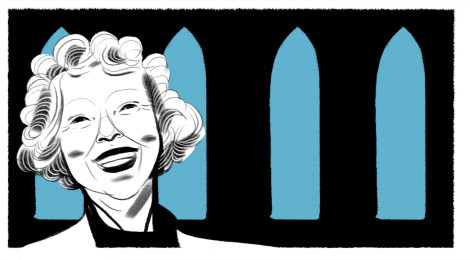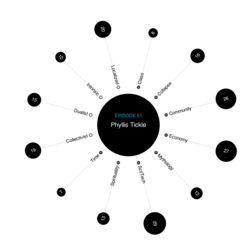
Episode 51: Phyllis Tickle
Phyllis Tickle founded Publishers Weekly’s Religion Department and has written numerous books about modern American Christianity, including The Great Emergence: How Christianity is Changing and Why.
Phyllis begins our conversation by describing 500-year social, cultural, and religious cycles in parts of the world influenced by Abrahamic faiths. Building upon that, she asserts that our current historical moment lies at the edge of two such cycles, leaving us to contend with a breakdown in how we understand authority. Emergence Christianity, like other emergent faiths, is developing as a response to this period of transition.
Though religion has been a regular theme in the background of The Conversation, this is our first episode dedicated entirely to it. As a result, we introduce a lot of new themes and you will hear fewer explicit connections to earlier episodes. Having said that, there are some interesting ties between Emergence Christianity and the income gap which harken back to Chuck Collins, Francione-like questions of purity versus pragmatism, and more Tim Cannon and Max More-style transhumanism than you’d ever expect.
Artwork by Eleanor Davis.




More attention to Islam as 1/3 of the Abrahamics may have shed light. It fits in roughly with the 500 year schematic. They pray with each other 5 (FIVE) times a day and seem to take it seriously.
So what has Islam brought to that mix whicc was needed? This gap in proceedings looks like an elephant in the room.
What does that system have to offer re economic management, avoidence of objectification of womens bodies, politeness and avoidance of intoxication?